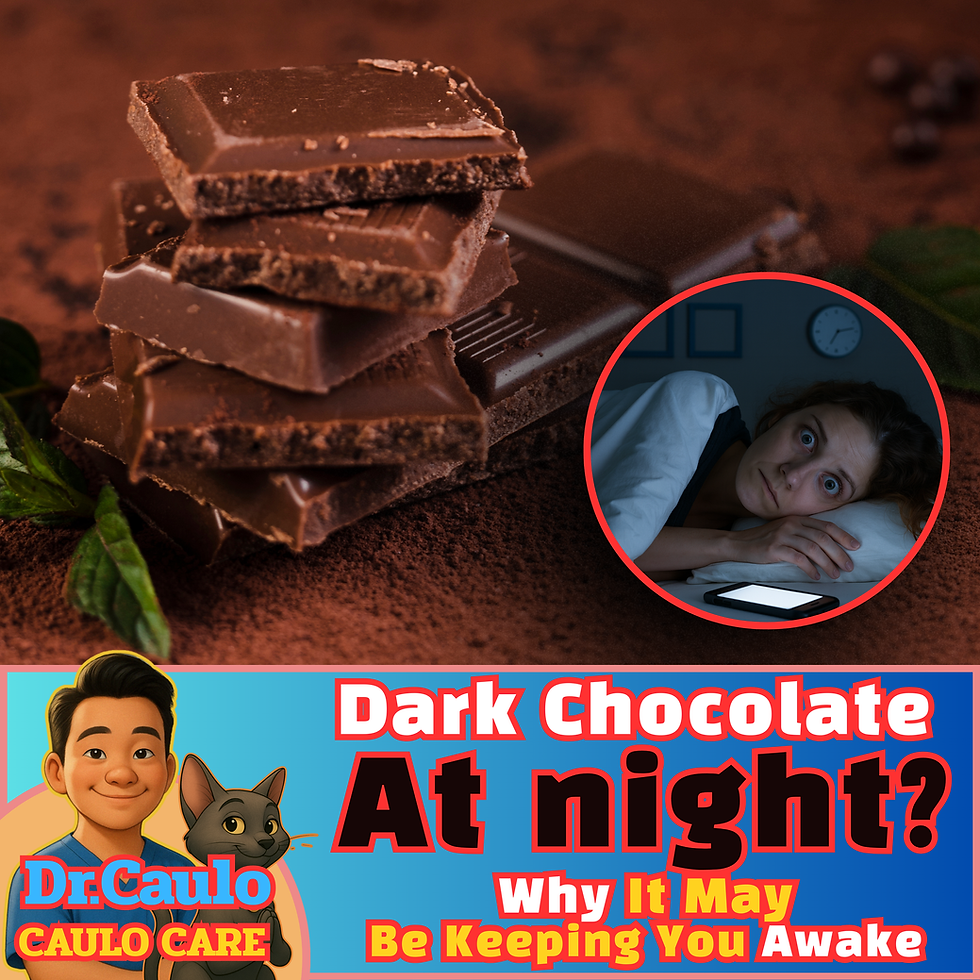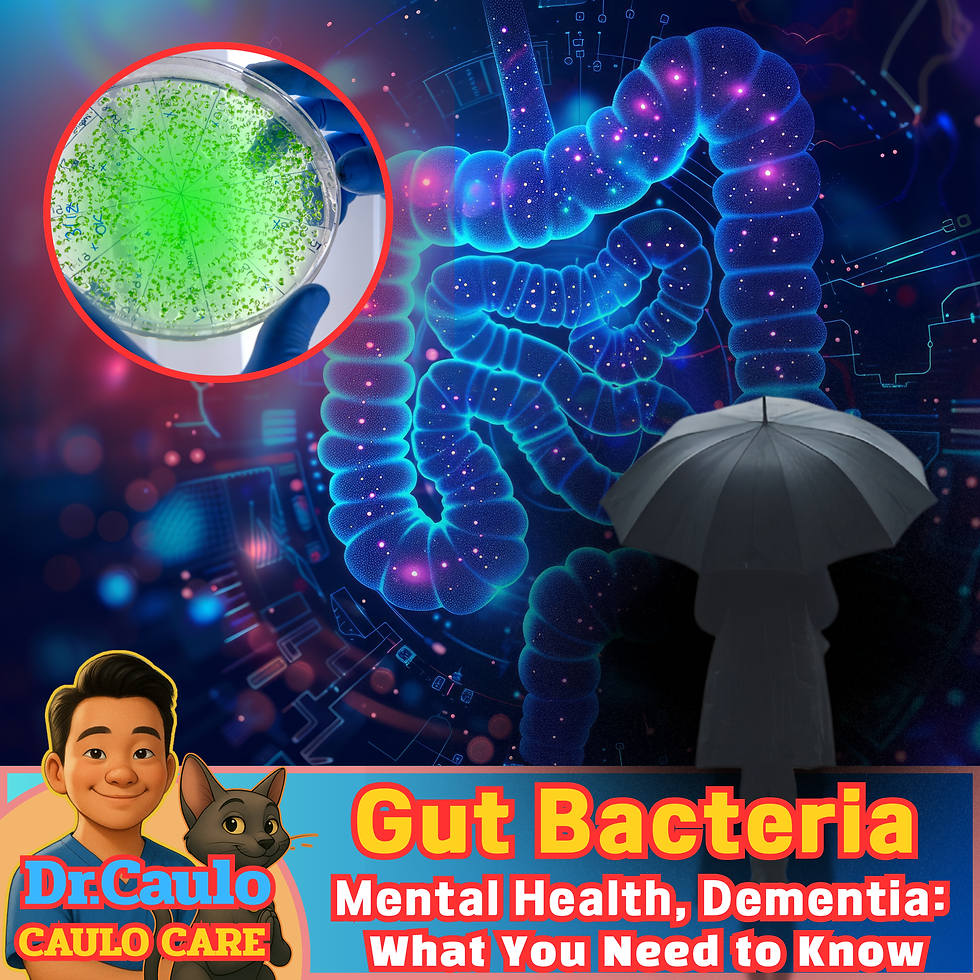"The Pain That Paralyzed an Empire: Ancient Egypt’s First Recorded Gut Emergency.
- caulocare
- May 21, 2025
- 4 min read

By Dr. Caulo Phumlarp, Caulo Care Acupuncture, May 2025
Intestinal obstruction, the blockage of normal movement of contents through the intestines, is a condition as ancient as humanity itself. Across millennia and medical traditions, from early Egyptian physicians to modern surgeons and Chinese medicine practitioners, this dangerous and sometimes life-threatening disorder has been studied, interpreted, and treated in dramatically different yet interconnected ways.
Today, we stand at the intersection of modern biomedicine and ancient healing wisdom, allowing for a holistic understanding of both the structure and the energy of the digestive tract.
🕰️ 1. Ancient Egypt (1550 BC): The First Signs of Obstruction
In one of the earliest known medical manuscripts, the Ebers Papyrus (c. 1550 BC), Egyptian healers recorded symptoms resembling what we now identify as intestinal obstruction — including abdominal bloating, vomiting, severe constipation, and a sense of "blockage" within the abdomen. Although the pathophysiological mechanisms were not yet understood, their clinical observations demonstrate that humans have been battling gut blockages for over three millennia.
📖 Reference: Bryan, C. P., The Papyrus Ebers, 1931
🧠 2. Ancient Greece (~350 BC): Praxagoras and Surgical Innovation
Fast forward to Ancient Greece, where Praxagoras of Cos, a student of Hippocrates, introduced an early form of surgical management for bowel obstruction. He developed the concept of the enterocutaneous fistula, creating a controlled opening between the intestines and the skin to relieve internal pressure. Though rudimentary by today's standards, this was one of the earliest recorded surgical interventions for gastrointestinal disorders.
📖 Reference: Ellis, H., A History of Surgery, 2001
🌀 3. Ancient Chinese Medicine (~200 BC): Qi Stagnation and Gut Health
In Traditional Chinese Medicine (TCM), the Huangdi Neijing (The Yellow Emperor’s Inner Classic) outlines conditions consistent with intestinal obstruction, particularly under the term "Fu Zang Bu Tong" (腑脏不通), referring to the impaired function of the internal hollow organs, especially the intestines. Symptoms such as abdominal distention, gurgling (肠鸣), and bowel blockage (便闭) are attributed to internal disharmonies such as Qi stagnation, retained food, phlegm accumulation, or internal cold.
📖 Reference: Unschuld, P., Huang Di Nei Jing Su Wen, 2003
🔬 4. Modern Medicine: Understanding SBO Today
Contemporary medicine classifies small bowel obstruction (SBO) into two primary categories:
🚫 Mechanical Obstruction
Causes: adhesions, hernias, tumors, volvulus, intussusception
Mechanism: A physical barrier impedes the movement of intestinal contents
⚡ Functional Obstruction (Paralytic Ileus)
Causes: surgery, inflammation, infections
Mechanism: the intestines lose their ability to contract and move contents forward
🧷 Common Symptoms:
Cramping or sharp abdominal pain
Vomiting (often bilious or fecal-smelling)
Bloating and distension
No bowel movements or gas
Abnormal bowel sounds (either hyperactive or absent)
⚠️ Severe Complications:
Bowel ischemia (loss of blood flow)
Necrosis (tissue death)
Peritonitis (infection of the abdominal lining)
Sepsis or septic shock
💉 Diagnosis and Treatment:
Imaging: abdominal X-rays or CT scans
Management: NG tube decompression, IV hydration, surgical intervention in complete or strangulated obstruction
📖 References: Mayo Clinic, Cleveland Clinic, American College of Surgeons
🧠 A Comparative Lens: Western vs. Eastern Perspectives on Obstruction
Feature | Modern Medicine | Traditional Chinese Medicine |
Focus | Physical obstruction, biochemical disruption | Energy/Qi stagnation and organ disharmony |
Diagnosis | Imaging, labs, physical exam | Pulse, tongue diagnosis, symptom patterns |
Treatment | Surgery, IV fluids, decompression | Acupuncture, herbs, abdominal massage, diet |
Therapeutic Goal | Remove physical blockage | Restore Qi flow and bowel harmony |
🌀 TCM Understanding: Fu Organ Dysfunction & Qi Blockage
In Chinese Medicine, the intestines are viewed as "Fu" (腑) organs, responsible for eliminating waste and maintaining gut harmony. When Qi (vital energy) fails to flow, stagnation can lead to clinical obstruction.
🩺 Common TCM Patterns in SBO:
Qi Stagnation with Cold (气滞寒凝)
Colicky pain relieved by warmth, pale tongue with a thin coat
Damp-Heat Accumulation (湿热壅滞)
Foul-smelling stools, fever, greasy yellow coating on the tongue
Food Retention (食积不化)
Bloating, nausea, foul belching
Blood Stasis (血瘀内阻)
Sharp, localized pain with tenderness
🧧 TCM Therapeutic Approach:
Herbs that promote Qi movement and purge blockages:
Hou Po, Zhi Shi, Da Huang, Fan Xie Ye, Mang Xiao
Acupuncture Points:
ST25 (Tianshu), RN12 (Zhongwan), ST36 (Zusanli), LI4 (Hegu), SP6 (Sanyinjiao), RN6 (Qihai)
📖 Reference: Celestial Lancets, Lu & Needham, 1980
💔 Real Patient Story: “It Wasn’t Just Constipation…”
“I thought it was just food poisoning… until the cramps became unbearable. I couldn’t pass gas for two days. By the time I got to the ER, I was vomiting bile and writhing in pain.”
“They diagnosed me with intestinal obstruction. I needed emergency surgery, and part of my small intestine was removed. If I had waited longer, I might not have survived.”
🎯 Key Takeaways:
Persistent abdominal pain should never be ignored
Gut health is intimately tied to the nervous system, immunity, and survival
Both modern imaging and ancient diagnostic wisdom can detect early signs of obstruction
🌿 Final Thoughts from Dr. Caulo Phumlarp
At Caulo Care Acupuncture, we believe in a fully integrative model of care, where ancient knowledge meets modern science. Intestinal obstruction may begin as a physical issue, but it is often a signal of deeper imbalance: whether it be stress-induced Qi stagnation or post-surgical dysfunction. By combining Western diagnostic tools with TCM insights and therapies, we help our patients heal not just from the obstruction but from the root causes behind it.
If you or a loved one experiences chronic bloating, constipation, or digestive discomfort, don’t wait. Your gut might be trying to tell you something important.
📚 References:
Bryan, C. P. The Papyrus Ebers, 1931
Nunn, J. F. Ancient Egyptian Medicine, 2002
Ellis, H. A History of Surgery, 2001
Roslyn, J.J., & Binns, M.S., Surgical Clinics of North America, 1981
Unschuld, P. Huang Di Nei Jing Su Wen, 2003
Lu & Needham. Celestial Lancets, 1980
Mayo Clinic, Cleveland Clinic, American College of Surgeons
This information is only educational and should not be construed as medical advice.
Everything must be balanced, and the suggestions may not apply to you.
A specialist doctor should be consulted for any medical advice or diagnosis.
BOOK AN APPOINTMENT NOW!
Acupuncture near me at Forest Hill, NY
🔶🔷🔶🔷🔶🔷🔶🔷🔶🔷🔶🔷
Dr. Phumlarp Caulo LA,c, MAc. OM, DAHM
Doctor of Acupuncture/Chinese Medicine
Caulo Care Acupuncture
🔖 By appointment only
☎️+1 (929) 269-4549




Comments